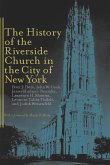In 1790, two events marked important points in the development of two young American institutions - Congress decided that the new nation's seat of government would be on the banks of the Potomac and John Carroll of Maryland was consecrated as America's first Catholic bishop. This coincidence of events signalled the unexpectedly important role that Maryland's Catholics, many of them by then fifth- and sixth-generation Americans, were to play in the growth and early government of the national capital. In this book William W. Warner explores how Maryland's Catholics drew upon their long-standing traditions - advocacy of separation of church and state, a sense of civic duty, and a determination "to live at peace with all their neighbors", in Bishop Carroll's phrase - to take a prominent role in the early government, financing, and building of the new capital. Beginning with brief histories of the area's first Catholic churches and the establishment of Georgetown College, At Peace with All Their Neighbors explains the many reasons behind the Protestant majority's acceptance of Catholicism in the national capital in an age often marked by religious intolerance. This chronicle of Washington's Catholic community and its major contributions to the growth of the nation's capital will be of value for everyone interested in the history of Washington, D.C., Catholic history, and the history of religious toleration in America.
Hinweis: Dieser Artikel kann nur an eine deutsche Lieferadresse ausgeliefert werden.
Hinweis: Dieser Artikel kann nur an eine deutsche Lieferadresse ausgeliefert werden.







